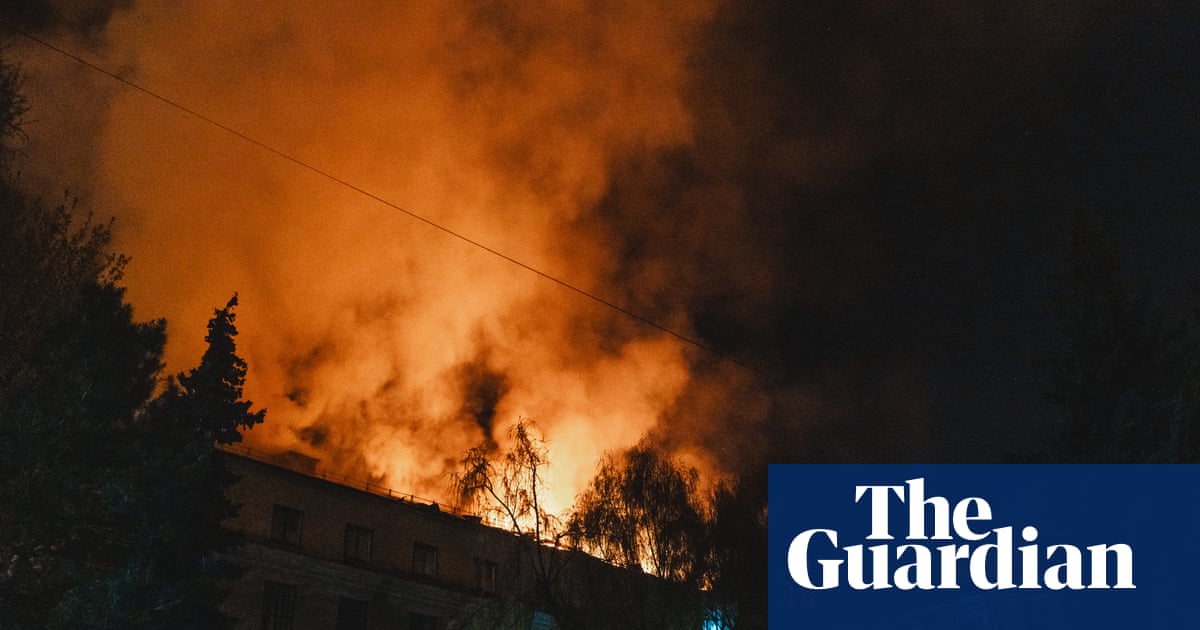Photo credit: www.theguardian.com
Ukrainian President Volodymyr Zelenskyy announced on Wednesday that negotiators working on a minerals agreement have achieved “good progress.” A senior official involved in the discussions informed Agence France-Presse that the latest drafts of the US-Ukraine agreement seem not to classify prior US military assistance as a debt owed by Ukraine, suggesting that negotiations are advancing at a rapid pace. This view aligns with a report from Bloomberg News, which indicated that the United States has relaxed its demand for Ukraine to reimburse military aid provided since the onset of the Russian invasion in 2022.
“The foundational legal aspects are nearing completion,” stated Zelenskyy during his daily address. He expressed optimism that, contingent upon continued constructive progress, the forthcoming agreement could yield economic benefits for both nations. Historically, the Trump administration sought arrangements that would grant the US access to substantial shares of critical minerals or “rare earths” from Ukraine in exchange for military assistance. While Zelenskyy has made clear that Ukraine will not view previous aid approved under the Biden administration as requiring repayment, he anticipates that future support will involve direct payments to the US.
Tragically, a recent wave of Russian “Shahed” drone strikes led to the deaths of a young woman and an elderly female resident while injuring at least 16 individuals in the city of Dnipro, according to local officials. Additionally, in the Kharkiv region, Governor Oleh Syniehubov reported that a missile strike in the town of Izium resulted in injuries to two citizens.
In a separate incident, Russian attacks in Kherson resulted in one fatality and three injuries, with authorities describing the events as a double-tap strike. Oleksandr Prokudin, the head of the Kherson region, noted that such assaults continued as rescue teams were deployed to assist victims.
On Wednesday, Ukrainian authorities reported the detention of nine individuals, including five teenagers aged 14 to 15, suspected of planning sabotage activities on behalf of Russian security agencies. The Security Service of Ukraine (SBU) revealed that some suspects had intentions to plant explosives near residential areas and railway lines, utilizing improvised explosive devices, and that over 30 kilograms of explosives had been confiscated. Earlier, the SBU accused Moscow of orchestrating attacks where two teenage boys recruited to construct explosives were killed.
The Kremlin, however, denied providing clarity on the duration of a purported 30-day pause in attacks on Ukraine’s energy infrastructure and has not confirmed whether this cessation would be extended. President Putin announced on March 18 that he ordered a halt to such strikes for 30 days, but Kyiv has accused Russia of persisting in these assaults.
In other developments, a former governor of Russia’s Kursk region along with his ex-deputy was arrested on charges of misappropriating more than $12 million from funds allocated for border security against Ukraine, according to official reports. Alexei Smirnov and Alexei Dedov were in leadership positions during a significant incursion by Ukrainian forces that took place in August 2024, marking a notable ground offensive on Russian territory since World War II. President Putin replaced Smirnov in December with Alexander Khinshtein following these incidents.
French President Emmanuel Macron is set to meet with US Secretary of State Marco Rubio and Donald Trump’s envoy for Russia, Steve Witkoff, on Thursday, as announced by the Élysée Palace. The discussions will focus on strategies to bring an end to the ongoing conflict in Ukraine.
In a significant legislative move, Latvian lawmakers voted to withdraw from a treaty banning anti-personnel mines to bolster the country’s defenses against potential Russian aggression. Inara Murniece, the chair of the parliament’s foreign affairs committee, stated that exiting the Ottawa Convention would enhance operational flexibility for their armed forces in the face of military threats. This decision is a direct consequence of Russia’s full-scale invasion of Ukraine and will take effect six months after Latvia formally notifies the United Nations.
Other Baltic nations, including Estonia, Lithuania, and Finland, have also declared intentions to renounce the landmine treaty. The International Committee of the Red Cross has described this trend as “a dangerous setback for the protection of civilians in armed conflict.” Lithuania has previously withdrawn from a treaty banning cluster bombs, a move motivated by concerns over Russian threats, raising alarms among human rights organizations.
Source
www.theguardian.com

